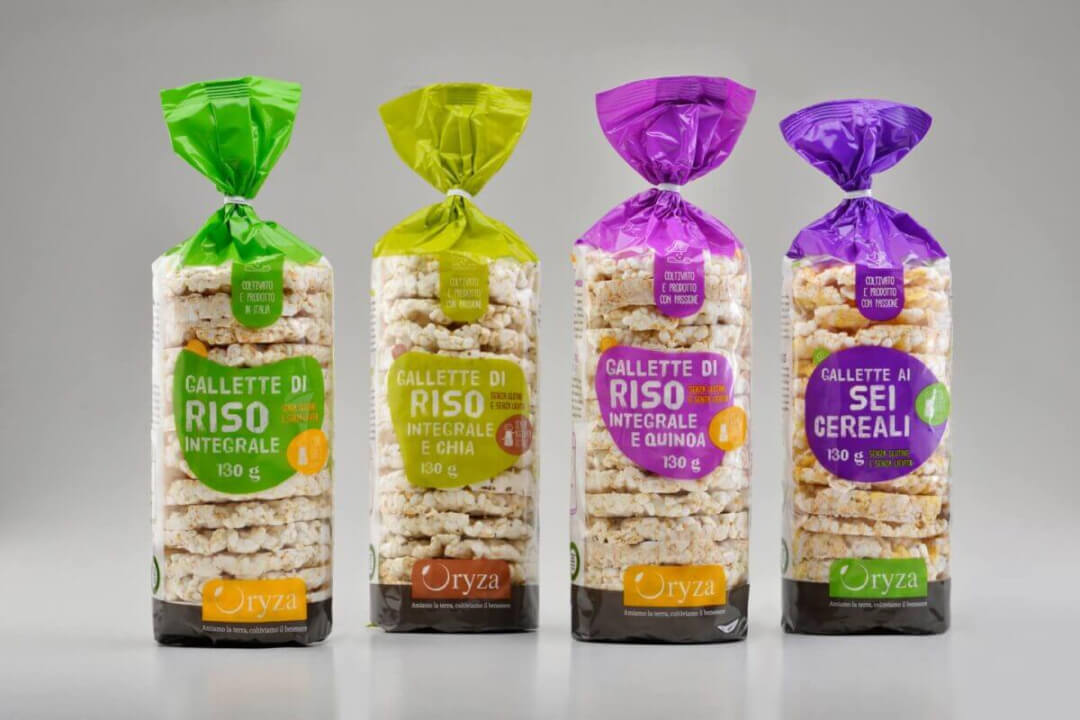HSQ4ALL
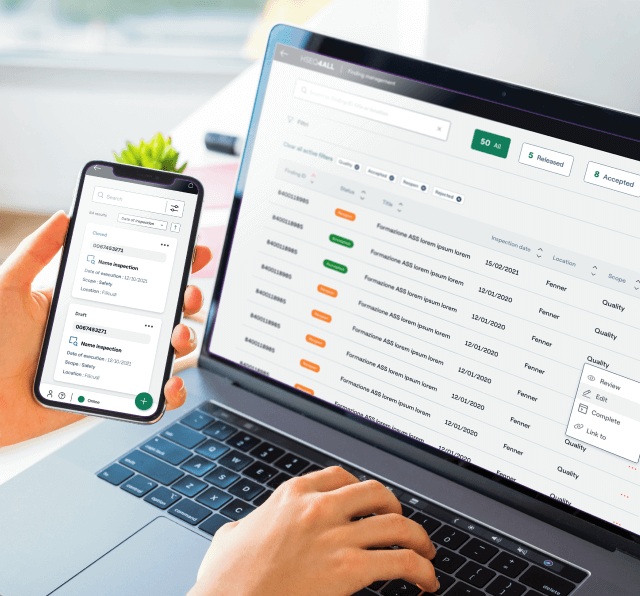
This project took place remotely but involved different countries, including Italy, the USA, Brazil, and Spain. To support the fast generation of inspections and event reports to monitor corrective actions, we were asked by Enel, a multinational energy company, to review their existing HSEQ4ALL service experience.
We proposed a consistent experience across laptops and mobile from the beginning to the end. The service created was designed to work effectively in offline mode, optimal for plant operations, and have a low internet connection to ensure that it is accessible and empathic to all users.
I managed business needs, generated an overview of the service through a blueprint, conducted initial user research to define critical personas, and established the concept and the design principles. Lastly, I created the user experience of the TO-BE MVP solution.
Company
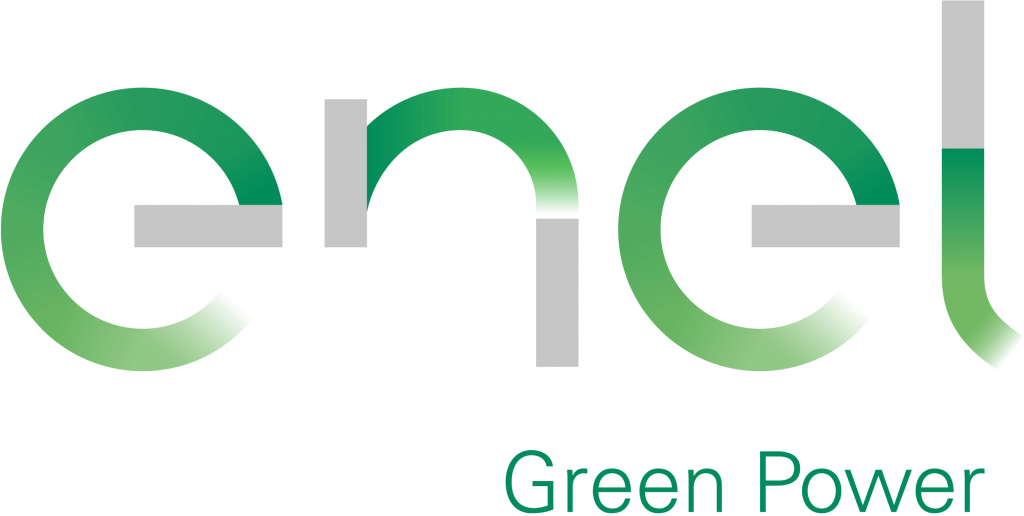
My role
Service designer
User experience
Timeline
2021-2022
Tools Used
Miro, Jira, Adobe XD, Powerpoint, Teams
User research and business requirements
The design process starts by reviewing the existing HSEQ4ALL service across all key aspects. Firstly, we participate in an inception phase for gathering business requirements and understanding how the system runs.
Secondly, we mapped out how the service works by doing a blueprint.

Thirdly, we did a qualitative analysis of pain and gain with seven user interviews conducted in three languages with representative roles from four countries.
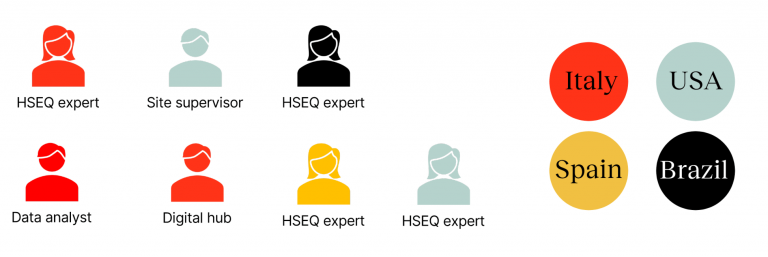
As a result, we group the users’ profiles into two key personas related to the service:
Richard, the worker who reports an event, and Martina, the HSEQ expert, receive the announcement.
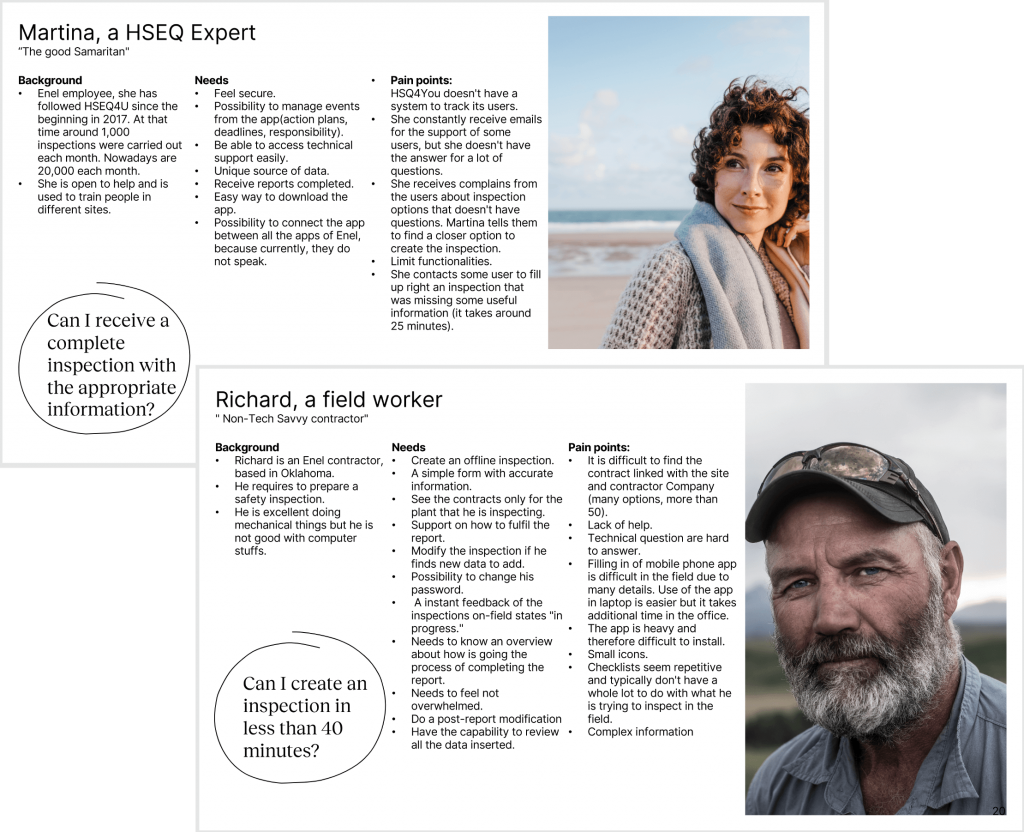
Insights
Additionally, we clustered the information collected and found seven themes of feedback that helped us to focus on the following areas for our concept:

We also determined five principles that guide us in designing and building the new service experience.

From Findings To Features
After consolidating our concept and principles, I planned and did the desired user experience and worked with a visual designer to create our prototype, which was approved after a few reviews from engineers and business stakeholders.
The subsequent screens are some of the results we did using the Enel design system, accessibility checks from experts, and some iterations of four user tests of our MVP validation.
Onboarding

Homepage

Inspection list
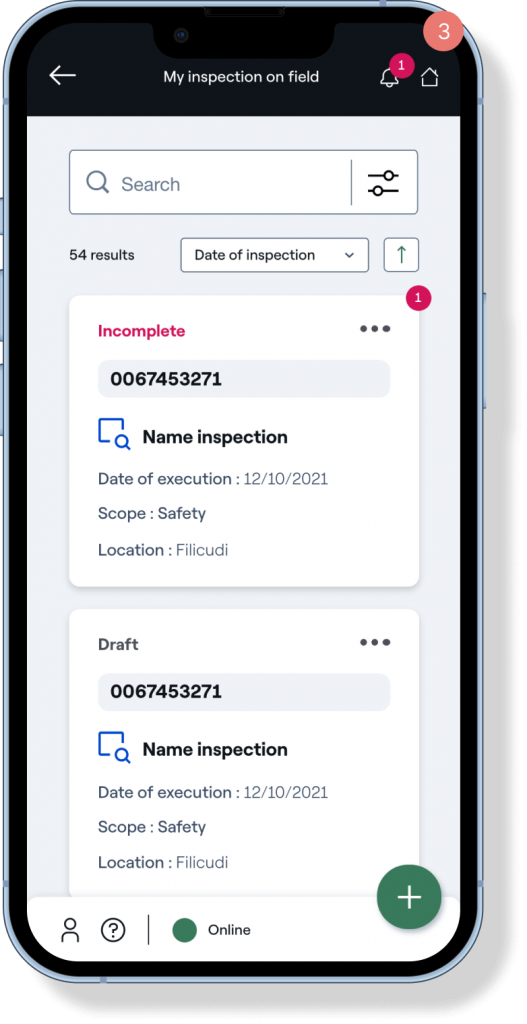
Onboarding: From the beginning of the experience, there is a support of essential content to explain some of the interactions and necessary interfaces the user will see when using the app.
Homepage: All the homepage sections are organised hierarchy by the system depending on the user's role; he won't see any other areas he is not allowed to use.
Inspection list: Inspection list: The worker can filter the list used by data, status and scope. At the same time, he can search by name or number.
Notifications
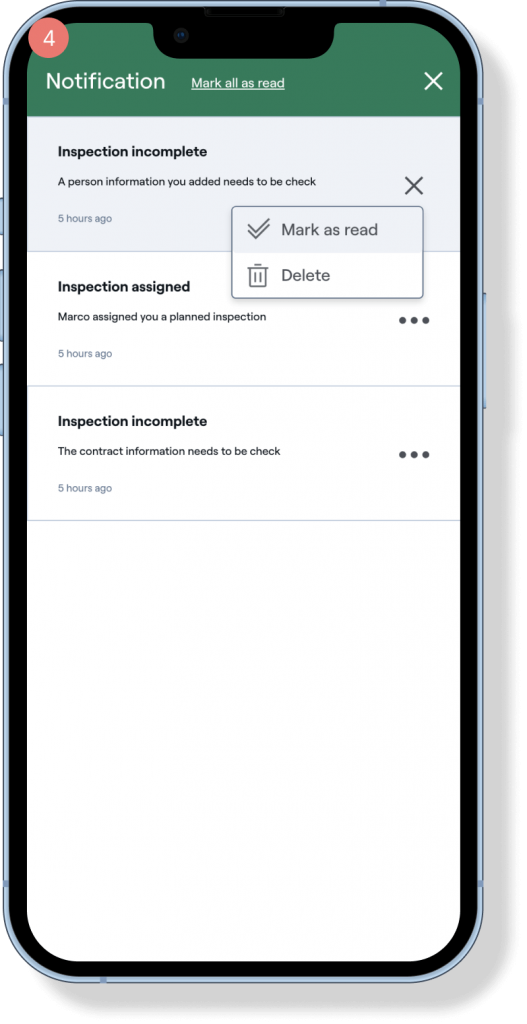
Checklist

Status and overview
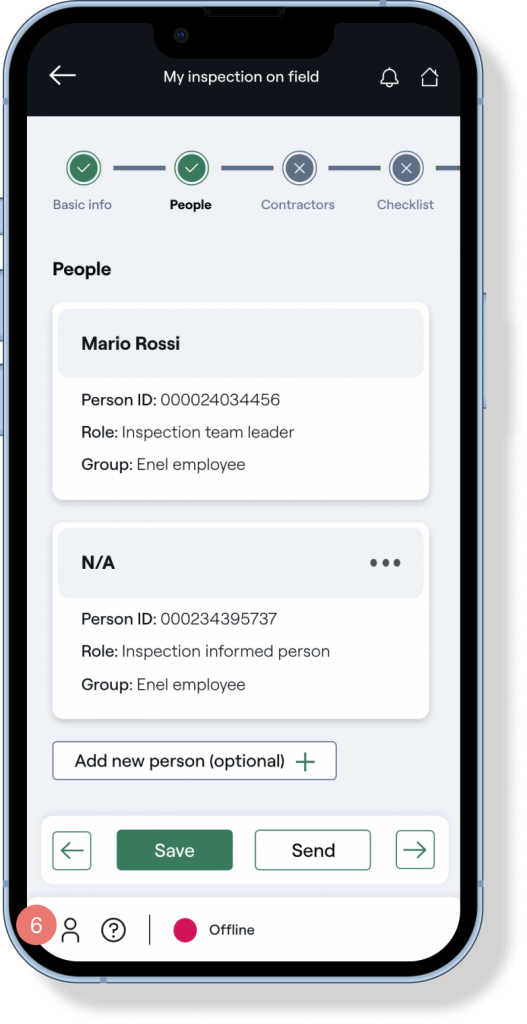
Notifications: Ensure the people to stay informed of any relevant HSEQ4you updates and see the progress of their reports.
Checklist: The questionnaire experience is simple and guides the process seamlessly.
Status and overview: Clear offline and online indication on update status. Easy application updates and fast access to support.
Conclusion
Our redesign service experience is 100% accessible, saving users 62% time and effort when creating a report. The service design and user experience methodologies verified the importance of developing solutions from the beginning to the end. This is based on a core investigation of business requirements and user needs.
Enel’s client was delighted and extended the collaboration to create other flows. This project’s success is due to research, a multidisciplinary team, and knowledge sharing.


